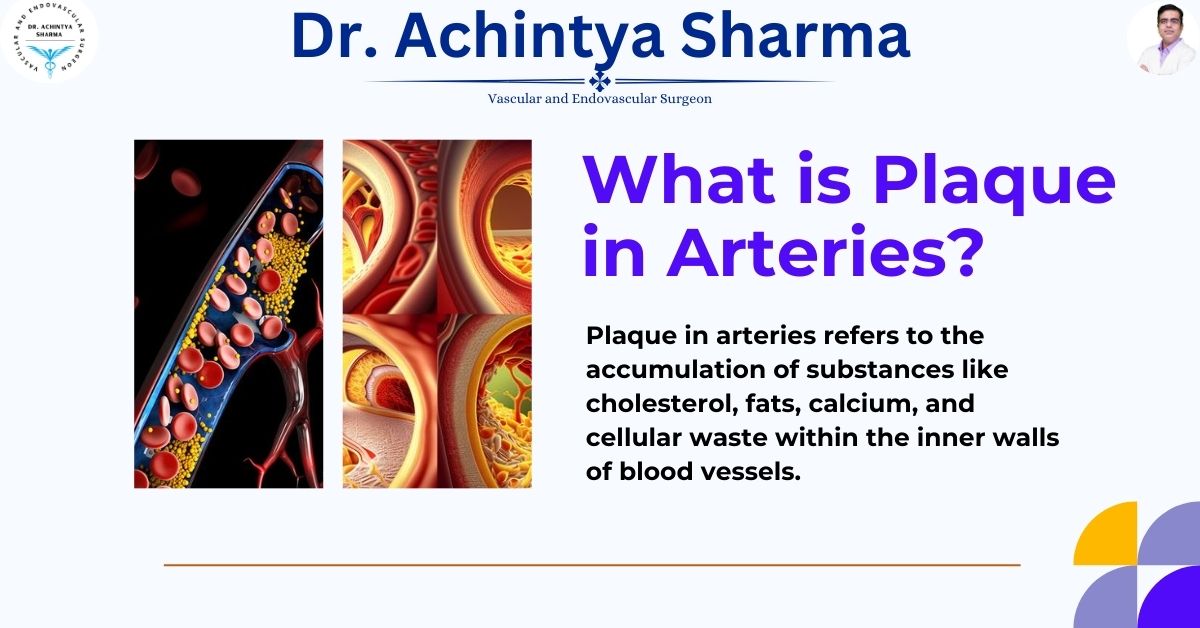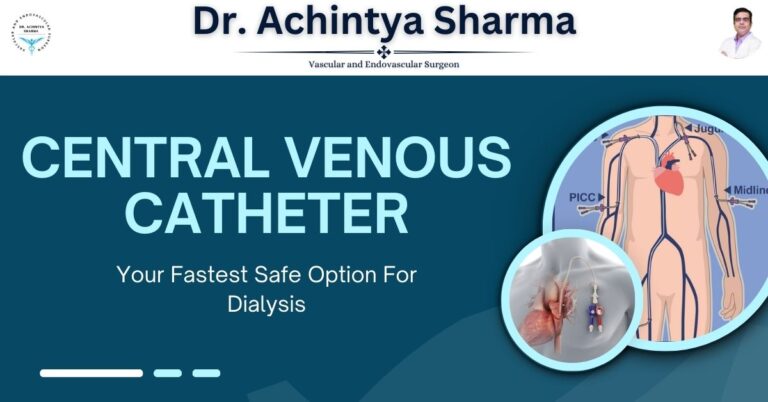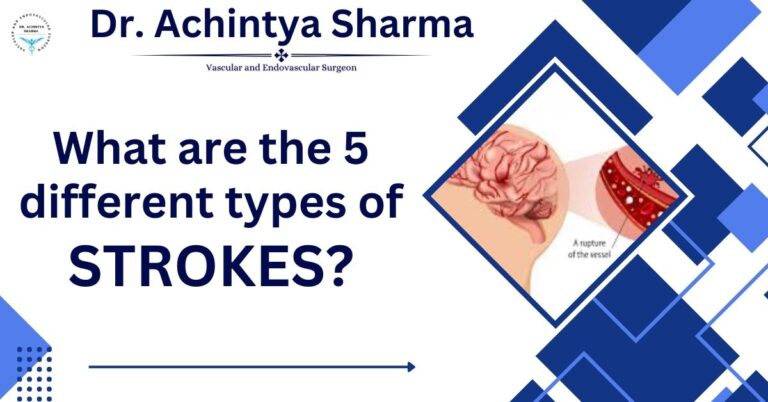Plaque in arteries, or atherosclerosis, is a condition that affects millions globally and poses severe risks to heart health. It involves the buildup of fatty substances, cholesterol, and other debris within arterial walls, narrowing these crucial pathways and limiting blood flow. Over time, this condition can lead to life-threatening complications, including heart attacks and strokes. Fortunately, understanding its causes and effects provides a roadmap to prevention and management. This blog explores the underlying factors, health impacts, and actionable strategies to combat plaque in arteries, empowering readers to make informed choices and prioritize their cardiovascular well-being.
What is Plaque in Arteries?
Plaque in arteries refers to the accumulation of substances like cholesterol, fats, calcium, and cellular waste within the inner walls of blood vessels. Over time, these deposits harden and narrow the arteries, reducing blood flow and increasing the risk of cardiovascular diseases. This progressive process, known as atherosclerosis, often starts silently and can remain undetected until complications arise.
Causes of Plaque Formation
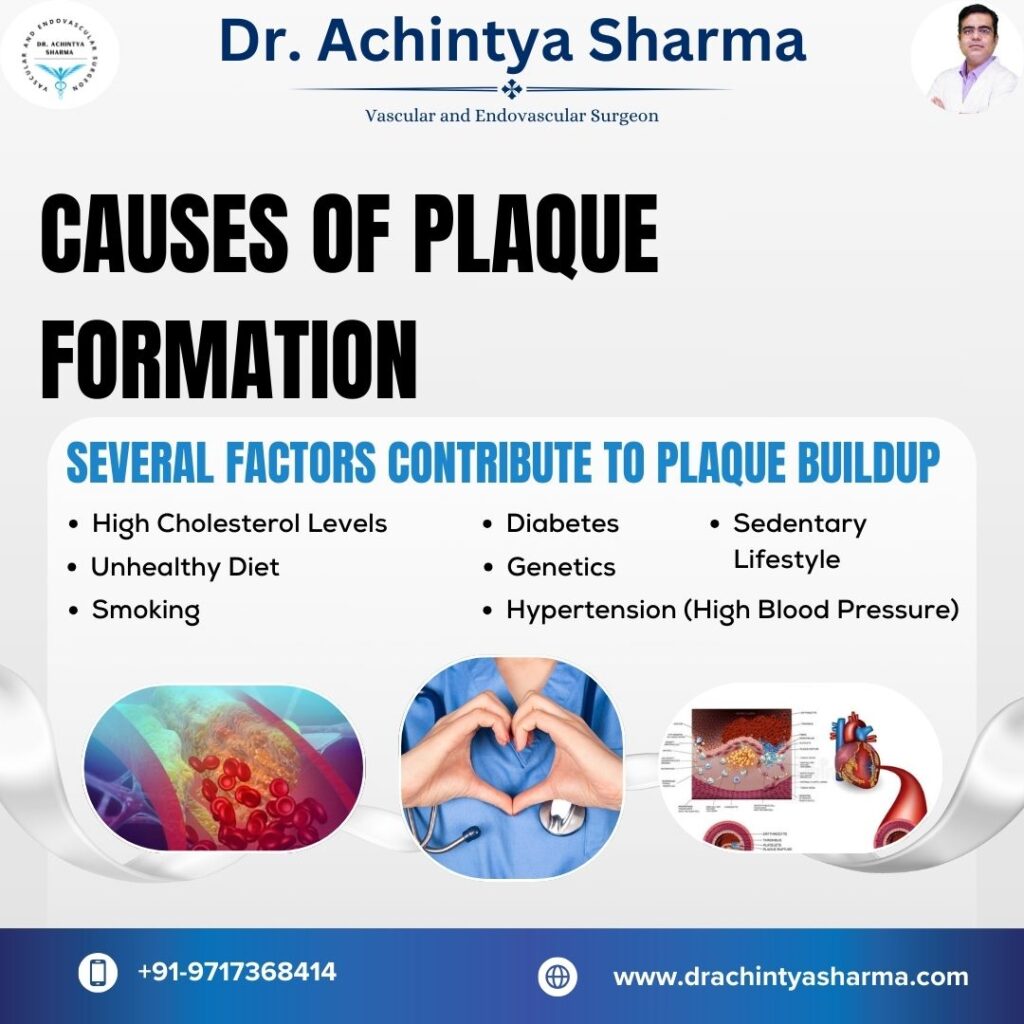
Understanding the causes of plaque in arteries is essential for prevention and treatment. Several factors contribute to plaque buildup:
- High Cholesterol Levels: Low-density lipoprotein (LDL) cholesterol, often termed “bad cholesterol,” is a major contributor to plaque formation. When LDL cholesterol levels are high, it can deposit on arterial walls, initiating plaque buildup.
- Unhealthy Diet: Consuming foods rich in trans fats, saturated fats, and refined sugars can increase cholesterol levels and promote plaque accumulation.
- Smoking: Smoking damages the arterial lining, making it more susceptible to plaque deposits. It also lowers levels of high-density lipoprotein (HDL) cholesterol, which helps remove excess cholesterol from the bloodstream.
- Hypertension (High Blood Pressure): Chronic high blood pressure can damage arteries, creating conditions conducive to plaque development.
- Diabetes: Elevated blood sugar levels can accelerate the formation of plaque in arteries by damaging blood vessels and increasing cholesterol levels.
- Sedentary Lifestyle: Lack of physical activity contributes to obesity, high cholesterol levels, and hypertension, all of which are risk factors for plaque buildup.
- Genetics: Family history plays a significant role in determining one’s risk for plaque in arteries. Genetic predisposition can influence cholesterol levels and arterial health.
Effects of Plaque in Arteries
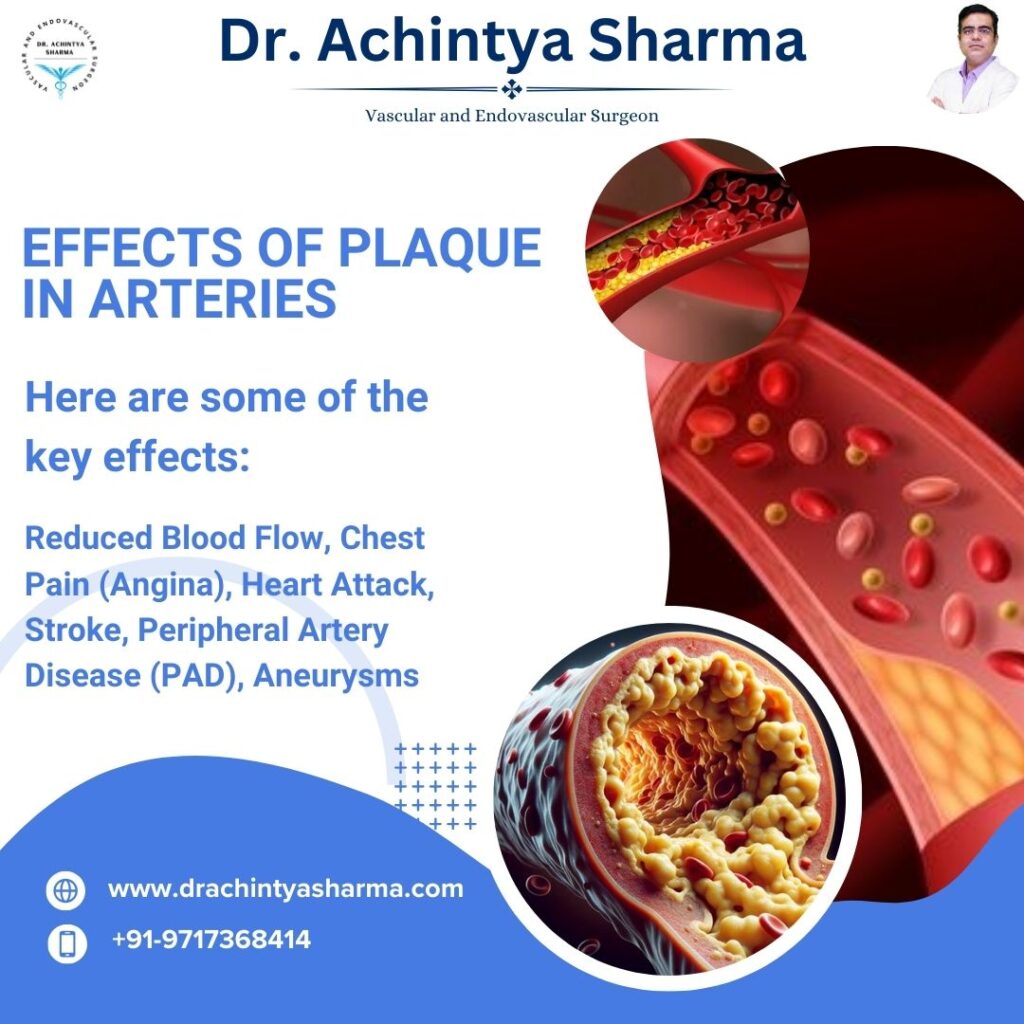
The presence of plaque in arteries has far-reaching consequences on overall health.
- Reduced Blood Flow: Narrowed arteries restrict blood flow to vital organs and tissues, leading to oxygen and nutrient deprivation.
- Chest Pain (Angina): Reduced blood flow to the heart can cause chest pain or discomfort, especially during physical exertion or stress.
- Heart Attack: If a plaque ruptures, it can trigger the formation of a blood clot that completely blocks the artery, leading to a heart attack.
- Stroke: Plaque in the arteries supplying blood to the brain can cause strokes, either by restricting blood flow or by forming clots that travel to the brain.
- Peripheral Artery Disease (PAD): When plaque builds up in the arteries of the legs or arms, it can cause pain, numbness, and mobility issues.
- Aneurysms: In some cases, weakened arterial walls due to plaque buildup can lead to aneurysms, which are life-threatening if they rupture.
Diagnosis of Plaque in Arteries
Early detection of plaque in arteries is crucial for effective management. Medical professionals use the following diagnostic methods:
- Blood Tests: Measure cholesterol and blood sugar levels.
- Imaging Tests: Techniques like ultrasound, CT scans, and MRI can visualize plaque buildup.
- Angiography: It is a medical imaging technique that uses X-rays to create detailed images of blood vessels and organs
- Electrocardiogram (ECG): Detects abnormalities in heart function caused by reduced blood flow.
Prevention Strategies
Preventing plaque in arteries involves adopting a healthy lifestyle and managing risk factors. Here are actionable steps:
- Healthy Diet:
- Eat plenty of fresh fruits, colorful vegetables, whole grains, lean proteins like fish or poultry, and heart-healthy fats such as olive oil or avocados.
- Cut down on foods high in unhealthy fats and added sugars to improve your heart health.
- Regular Exercise:
- Spend about 30 minutes a day, five times a week, doing activities like brisk walking, cycling, or dancing to keep your heart healthy.
- Include strength training exercises twice a week.
- Quit Smoking:
- Seek professional help, join support groups, or use nicotine replacement therapies to quit smoking.
- Control Blood Pressure:
- Maintain blood pressure within the recommended range through medication, diet, and exercise.
- Manage Cholesterol Levels:
- Use cholesterol-lowering medications if prescribed.
- Incorporate foods high in soluble fiber and omega-3 fatty acids to improve cholesterol profiles.
- Maintain Healthy Weight:
- Work towards a healthy weight by eating nutritious meals and staying active every day
- Diabetes Management:
- Monitor blood sugar levels and adhere to prescribed treatments and lifestyle changes.
Treatment Options
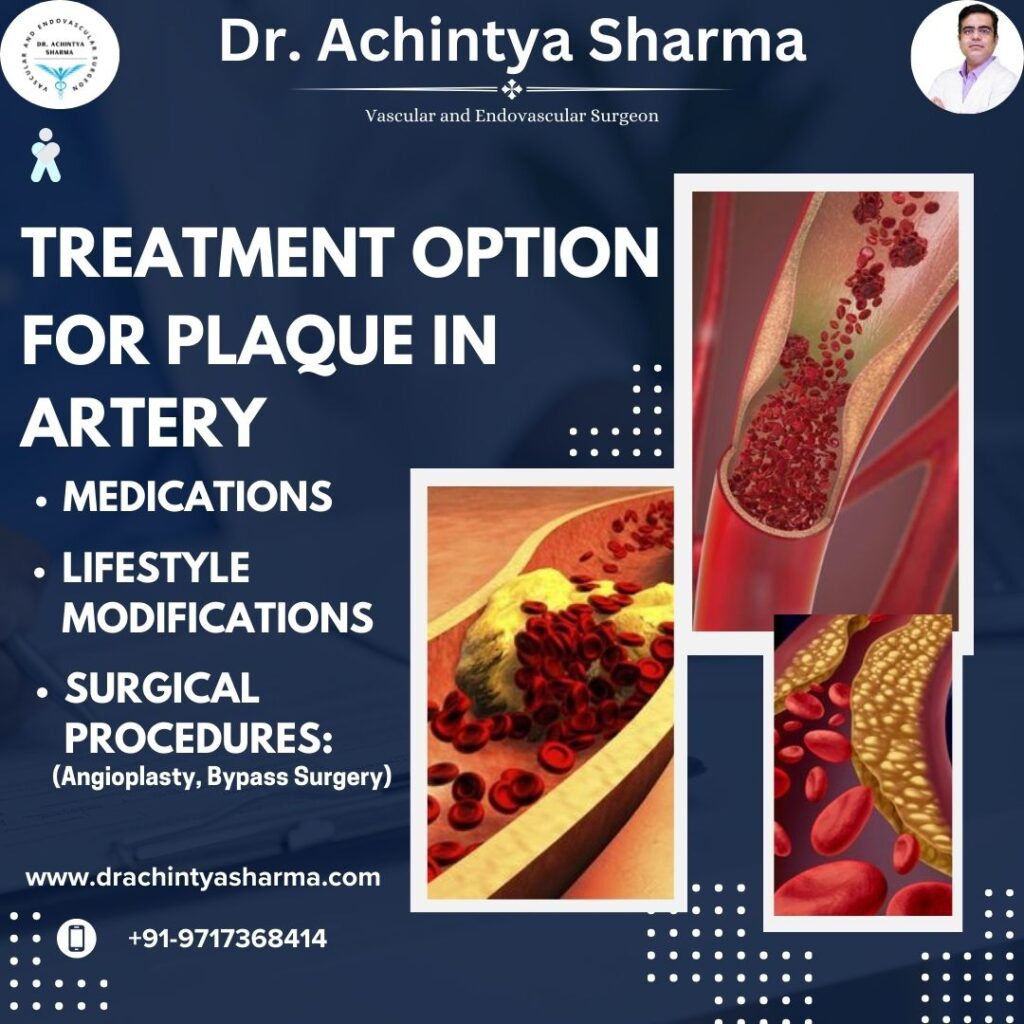
If plaque in arteries has already developed, medical intervention may be necessary. Treatment options include:
- Medications:
- Statins to lower cholesterol levels.
- Antiplatelet drugs to prevent blood clots.
- Blood pressure medications to reduce strain on arteries.
- Surgical Procedures:
- Angioplasty: It is a procedure that opens blocked coronary arteries, the main blood vessels that supply blood to the heart.
- Bypass Surgery: It is a surgical procedure that reroutes a tubular body part, such as a blood vessel.
- Lifestyle Modifications: Even with medical treatment, lifestyle changes remain critical for long-term success.
Conclusion
Plaque in arteries is a significant health concern that requires proactive attention. By understanding its causes and effects and adopting preventive measures, individuals can significantly reduce their risk of serious cardiovascular events. Regular medical check-ups, a balanced diet, regular exercise, and avoiding harmful habits like smoking can go a long way in maintaining arterial health. Remember, taking care of your arteries is an investment in your overall well-being.
By staying informed and making healthier choices, you can combat plaque buildup and ensure a longer, healthier life.

